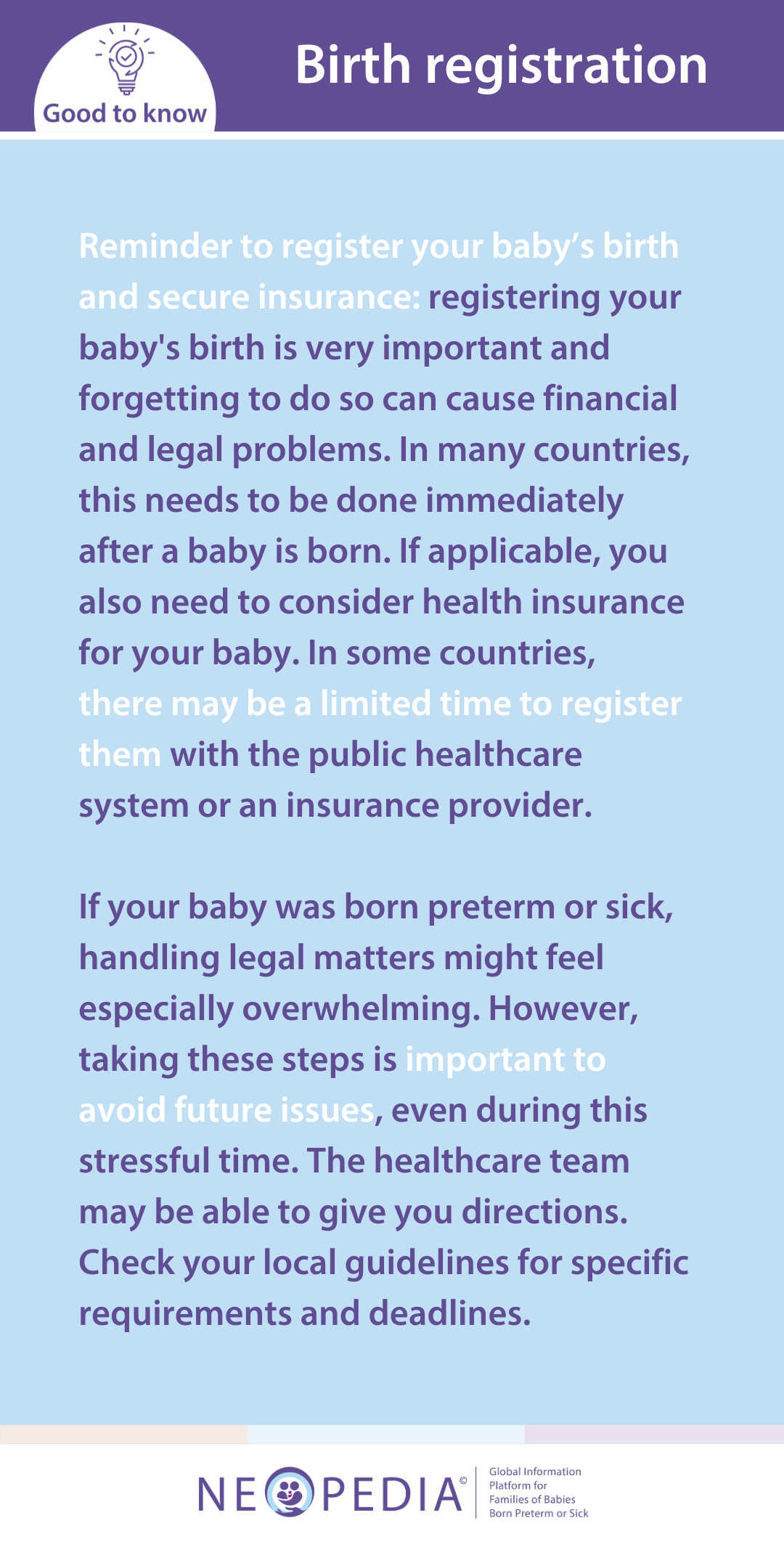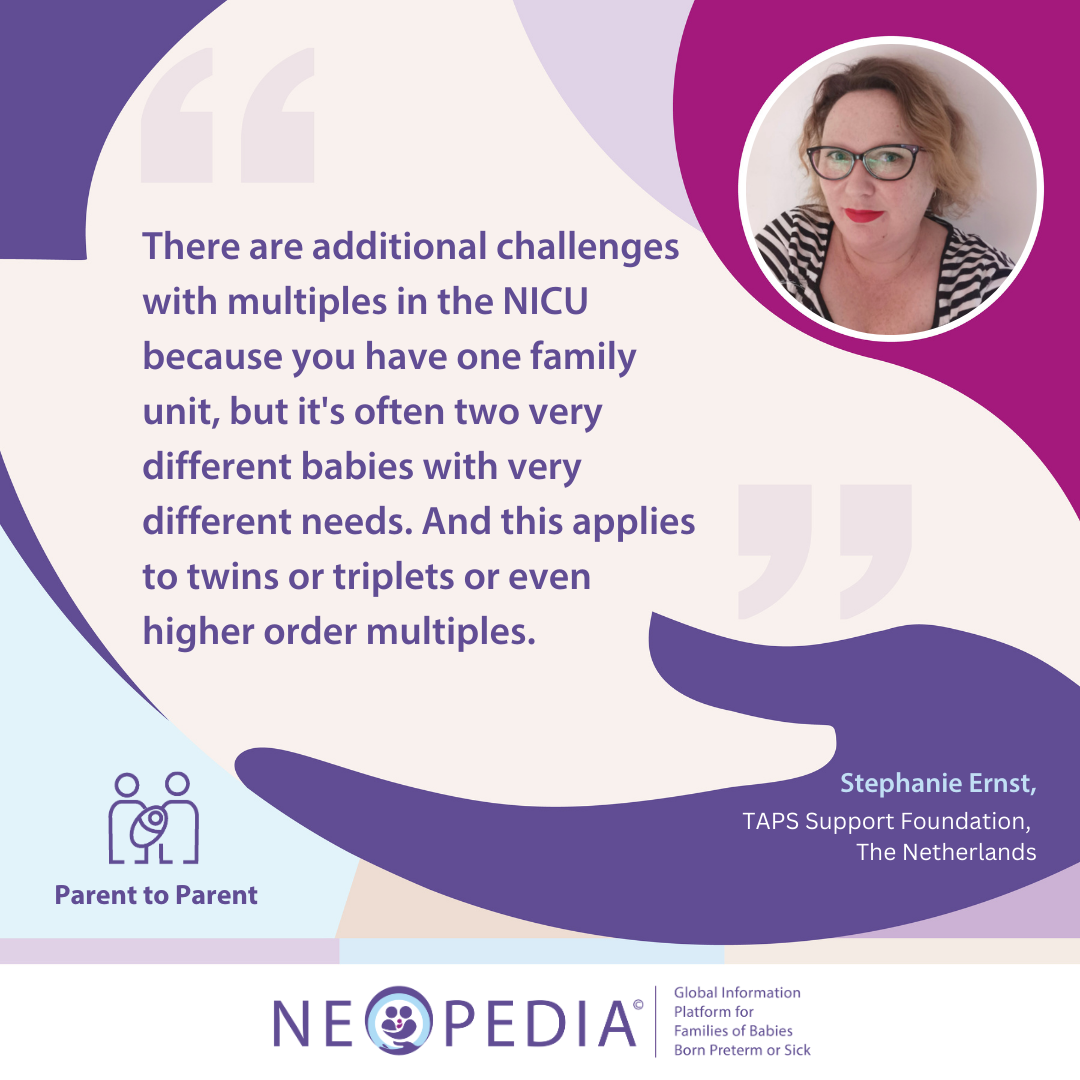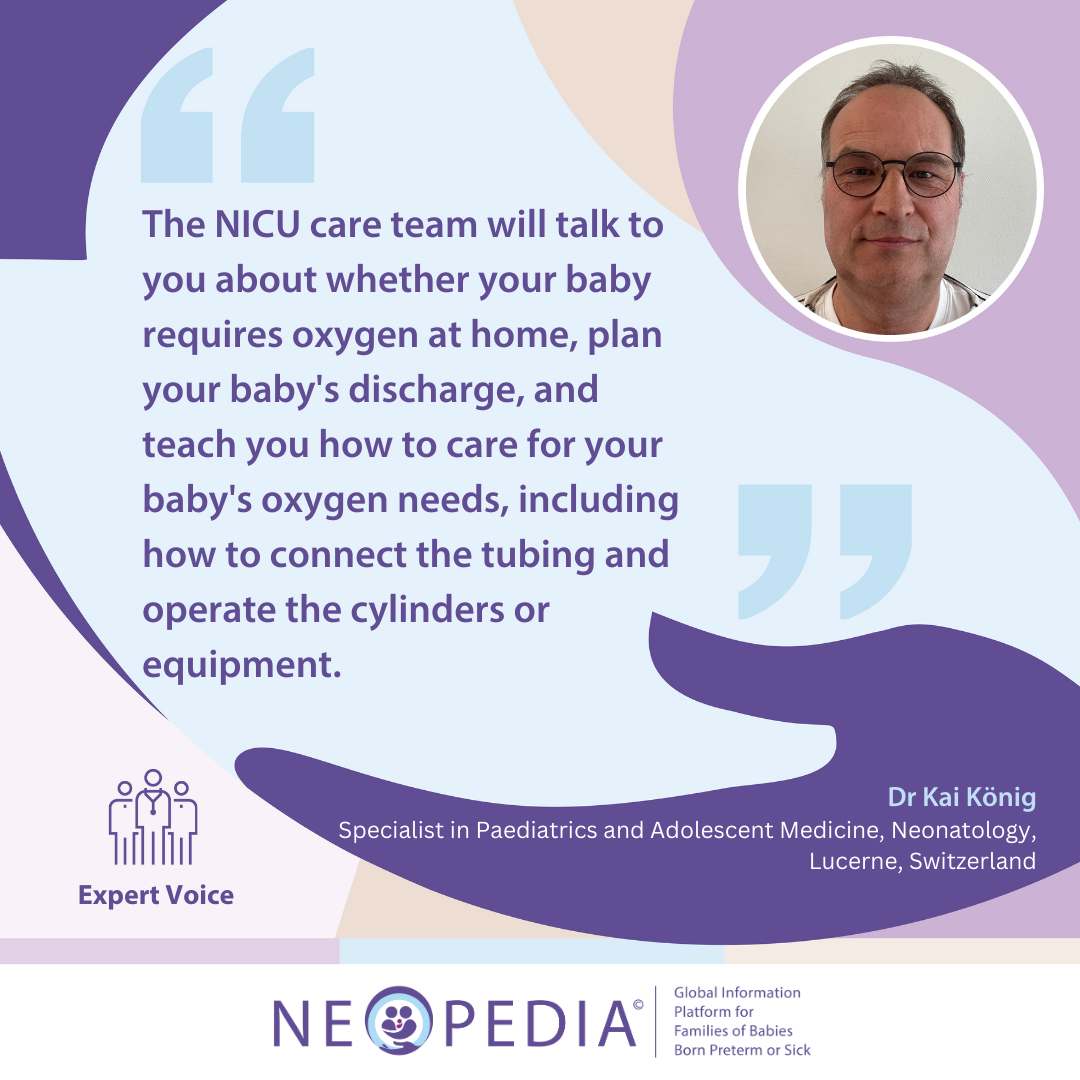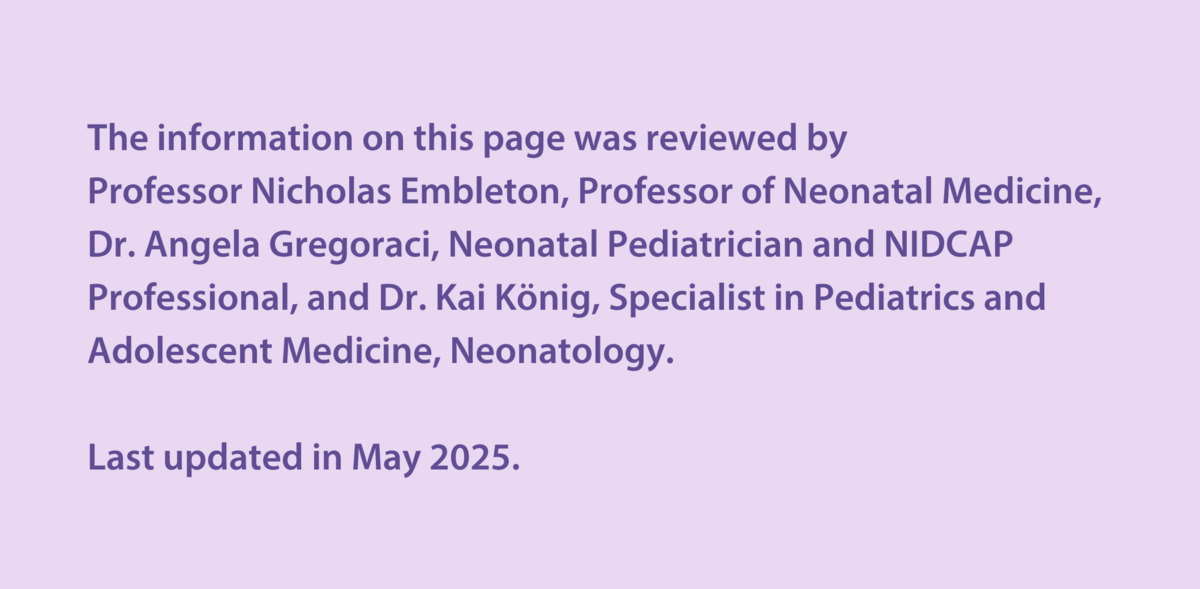
Preparing for your baby's discharge from the neonatal unit involves several important steps. Below, we have organized the key points to help you navigate what to expect and how to prepare.
Bringing comfort items for your baby
To comfort your baby, you may want to bring their own clothes, a colorful toy, or a special blanket to the neonatal unit that smells of home and are clean. This can help make it easier for them to adjust to their new environment. Check with your NICU care team before bringing any items into the unit to ensure that there are no safety issues.
Registering your baby with a family doctor/pediatrician
In case you have not done already earlier in pregnancy, register your baby with a general practitioner (GP)⍰, family doctor, or local pediatrician as soon as possible. Especially very preterm babies may need a doctor who has specific expertise with such babies (usually a pediatrician). Once your baby is getting closer to its discharge date from the neonatal unit, contact your baby’s future practice to schedule the first appointment. Make sure with the neonatal staff that the discharge summary and other relevant documents, reports etc. are complete before your baby leaves the nursery, and that both you and the future doctor of your baby receive a copy. Feel free to contact the future doctor in advance by phone or email for the opportunity to share important information, discuss any concerns, or ask questions in advance. You can also talk with them about recommended prescriptions, therapies, and ensuring your baby receives vaccinations⍰ on time.

For parents of twins or multiples, it is common for one baby to be ready to go home before the other. This can be both emotionally and practically challenging when one baby is discharged, while the other remains in the hospital. Units usually try to avoid separating babies if the difference in readiness is only a few days. The NICU care team will help you with planning, and you are encouraged to ask them if you have any concerns. It is a good idea to ask early about the planned discharge of your babies to make sure you have enough support at home. This will also help you plan how to divide your time between the babies in the hospital/ at home, and any other responsibilities, especially if one of you needs to return to work.
Some babies may need medication, vitamins, or other supplements after they leave the neonatal unit. If your baby needs medicines after discharge, make sure the NICU care team show you how to administer it and how many times a day to give it. Make sure you know when you might need a ‘repeat prescription’ and whether you will get that from your general practitioner (GP)⍰ or from the hospital. It may be helpful to let your local pharmacist know about your regular prescriptions so there is a steady supply.

Make sure you know how to get more supplies from the hospital, supplier or pharmacy. Some hospitals may provide different equipment for when you leave the house, such as portable cylinders.
Make sure you understand the risks and keep your household safe, for example, by ensuring no one smokes.
Ask for an emergency contact number in case you have problems with the equipment or feel your baby needs more oxygen.

